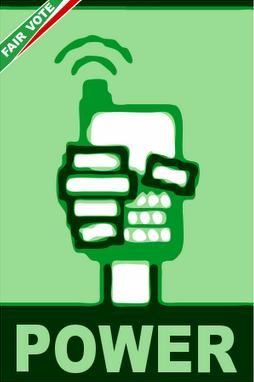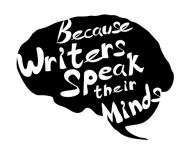On 16 August two men were jailed in UK for four years over Facebook messages inciting disorder – their cases sparked criticism of ”disproportionate” sentences, Index on Censorship reports.
2 men sentenced in UK
Jordan Blackshaw, 20, and Perry Sutcliffe-Keenan, right top corner, 22, pled guilty to using the social networking site “to intentionally encourag[e] another to assist the commission of an indictable offence under sections 44 and 46 of the Serious Crime Act 2007″.
Judge Elgan Edwards, QC, the Recorder of Chester, said that he hoped the sentences would deter any other potential looters. He said that their behaviour was “evil”, especially “at a time when collective insanity gripped the nation”. Blackshaw and Sutcliffe-Keenan were caught after their events were reported by concerned users of the site.
Emily Butselaar, Online editor of Index on Censorship said: “These sentences and the government’s rhetoric on banning social media during unrest are undermining our international reputation as a bastion of free expression and justice. The fact the Chinese state media have praised the UK government for suggesting such a ban should be acutely embarrassing for No. 10.
“In adopting a one-size-fits-all approach to sentencing, the courts have failed to recognise that these are very different cases. Sutcliffe-Keenan claimed he created the Facebook event as a drunken joke. His post was only up for a matter of hours before he took it down and apologised online, whereas Blackshaw was arrested by police at the meeting place he’d designated.
“The sentences were imposed with the aim of deterrence but Index is concerned that the courts are in danger of undermining the UK’s reputation for both justice and freedom of speech. Even though these cases did not lead to violence, these “speech crimes” have led to some of the harshest sentences see n following the riots in the UK last week.”
n following the riots in the UK last week.”
UK’s PM suggests to control social media
Last week UK’s Prime Minister David Cameron suggested that new controls on social media such as Twitter, Facebook and Blackberry Messenger should be considered in response to reports that these services might have been used during the UK riots, reports Dave Banisar from Article 19.
According to him, it’s blatantly obvious that social media is not to blame for the riots because it is hilariously implausible that the riots were seriously masterminded by a vast conspiracy of hoodie-clad teenagers using encrypted networks.
He says that overreaction by the police and silly postering about shutting down social media by politicians is not the solution to managing social unrest. A mature understanding of the problems is.
China reacts to Comeron’s speech
Banisar reminds that the other countries in the world watching the UK and these statements are setting a dangerous precedent.
“In response to Cameron’s speech, the Chinese governments’ official news agency People’s Daily Online reacted with glee, stating “Learning a hard lesson from bitter experience, the British government eventually recognized that a balance needs to be struck between freedom and the monitoring of social media tools“. Twitter and Facebook are banned in China while local versions are strictly monitored and censored to prevent criticism of the government and the powerful”, adds Banisar.
monitored and censored to prevent criticism of the government and the powerful”, adds Banisar.
“Politicians in the UK and beyond, need to recognise that modern telecommunication networks and social media are now an integral part of every aspect of day-to-day life, from keeping in touch with friends, to reading the news and applying for jobs. Social media systems played an important role in informing residents about what was happening during the UK riots. Social media was later used to organise the street cleanups.”
The vast majority of online content is legal and fully protected under UK law from being censored. Any restrictions placed on social media and the internet constitutes a major violation of national and international law.
The internet and social media is no longer just a marginal technical tool for geeks and games. It plays a crucial role in the nation’s economic and social life and now equals traditional news outlets when it comes to making information available to the public – especially during disasters and times of social upheaval.
Internet writers detained in UAE and Vietnam
Unfortunately bloggers and social media users in other states are sentenced not only for inciting riots but also for criticising government.
English PEN reports that two internet writers in United Arab Emirates (UAE) Ahmad Mansoor and Nasser Bin Gheith were detained and now are facing charges for their dissident activities and writings. Mansoor has reportedly been subject to ill-treatment in prison, and there are serious concerns for his welfare.
Well-known blogger and rights activist Ahmad Mansoor and internet writer and economic analyst Nasser Bin Gheith were arrested at their homes on 8 and 10 April 2011 respectively after signing a petition calling for democratic and economic reforms.
They are among five activists to be facing charges of ‘insulting the head of the stat e’, ‘stirring sectarian strife’, and ‘destabilisation’ after participating in the online pro-democracy forum Emirati Dialogue (Emirati Hiwar).
e’, ‘stirring sectarian strife’, and ‘destabilisation’ after participating in the online pro-democracy forum Emirati Dialogue (Emirati Hiwar).
The trial started on 18 July 2011 in Abu Dhabi; both Mansoor and Bin Gheith reportedly pleaded not guilty to the charges at the closed hearing. On 25 July 2011, the court adjourned the trial to 26 September 2011.
In other case French-Vietnamese university teacher and Internet writer Pham Minh Hoang was sentenced to three years on 10 August 2011 for his critical online writings.
English PEN calls to appeals to UAE and Vietnamese governments calling for immediate and unconditional release, and the release of all those detained in violation of their right to free expression, in accordance with the International Covenant on Civil and Political Rights (ICCPR) to which Vietnam is a signatory.
Related articles:
No frontiers, new barriers – free speech and attempts to stop it
Threats to internet freedom – political censorship and government control over infrastructure
Bahrain: life sentences for exercising right to free speech
Amnesty International Norway calls China to follow Google
Index on Censorship welcomes Google stand on free expression
China: the art of web censorship
Iran: one year after elections – importance of internet and small media





